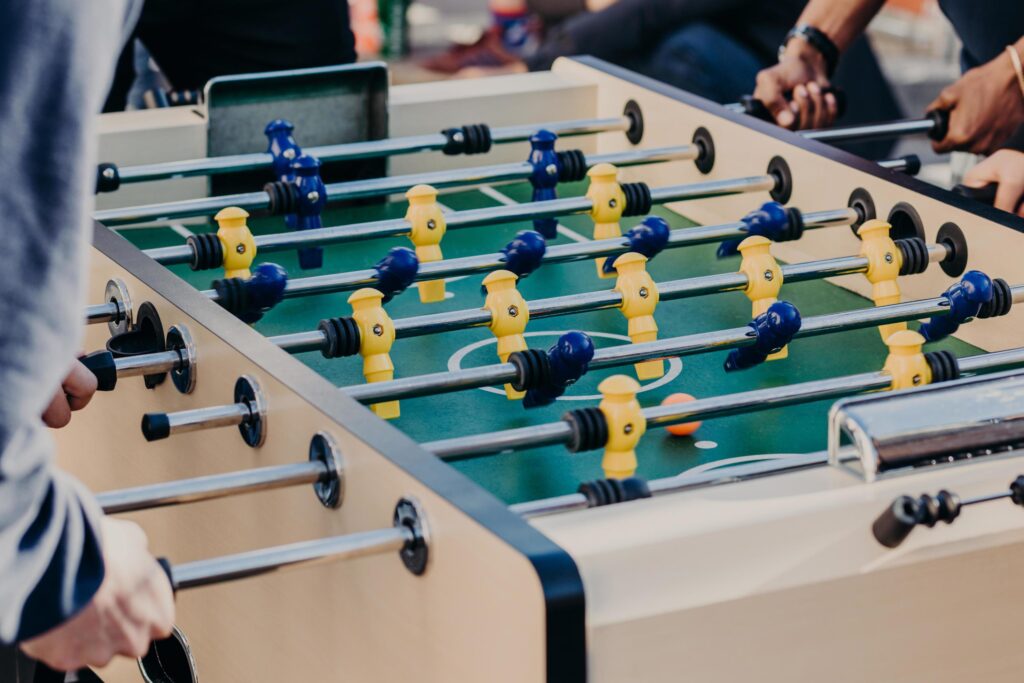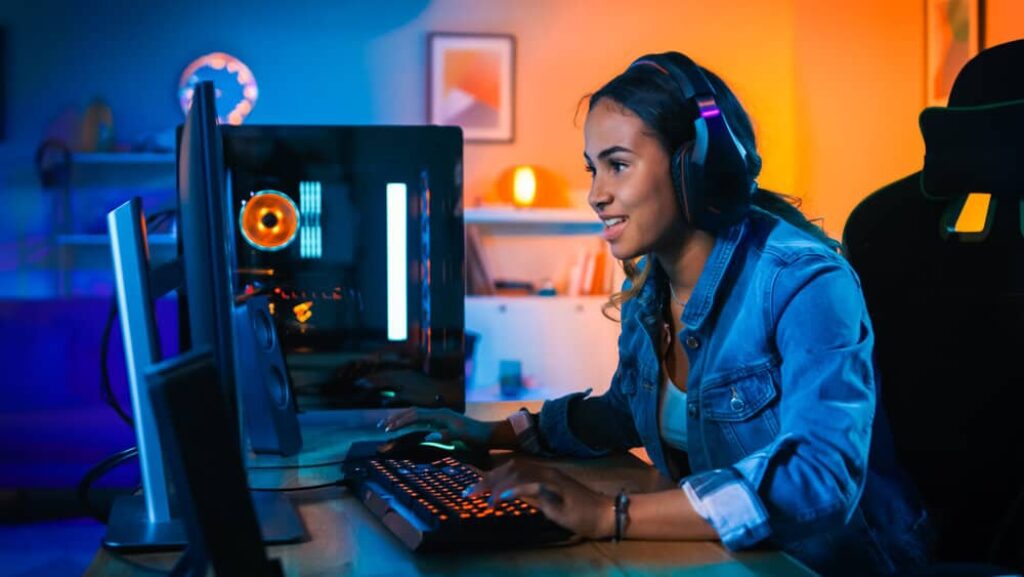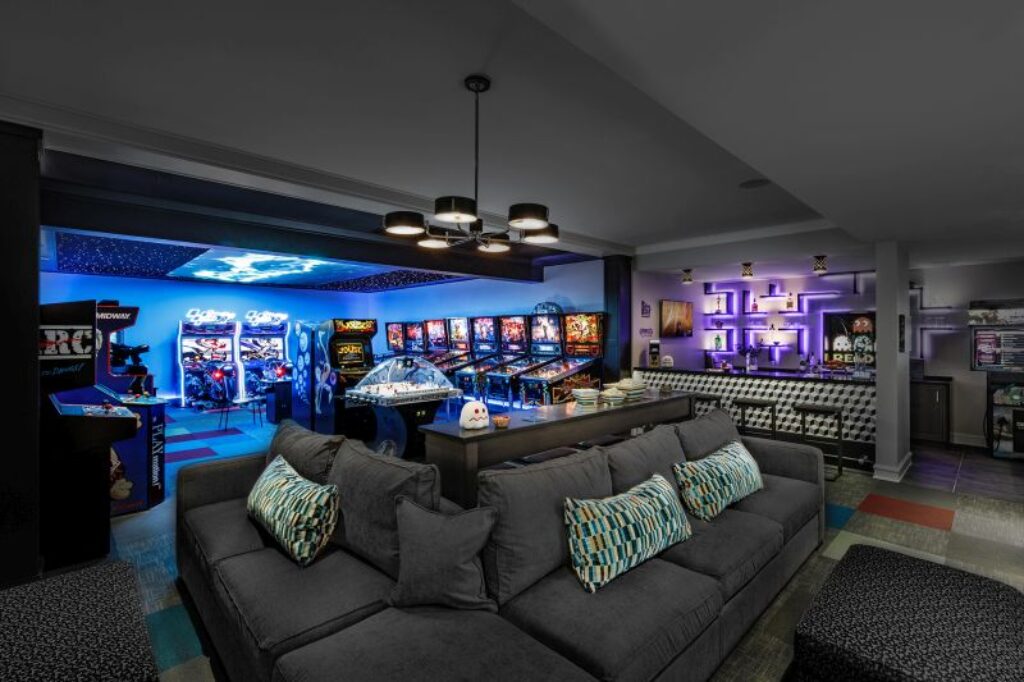
Imagine a space in your home or workplace where stress fades, creativity flourishes, and social bonds strengthen. This is not a distant dream but a tangible reality you can create through a game room.
This comprehensive exploration will uncover how dedicating a space to play can profoundly influence mental well-being, offering an accessible sanctuary where joy and relaxation thrive.
Table of Contents
The Psychology of Play – Why It Matters

Source: vecteezy.com
At its core, play is an essential human activity, important no longer just for children but for adults as well. You wouldn’t accept as true what a small foosball table should do to your mental health.
Psychologists and researchers agree that accomplishing playful activities can dramatically improve intellectual health by using reducing strain, growing creativity, and enhancing emotional resilience. A game room, stocked with a whole lot of playful options, serves as a perfect venue to foster this crucial activity.
Stress Reduction
Engaging in play triggers the discharge of endorphins, the body’s herbal feel-proper chemicals. Games, specifically those that require bodily activity like desk tennis or pool, can also serve as a shape of bodily exercise, which is known to reduce pressure.
Additionally, having a specific place where you can still interact in play allows you to mentally separate enjoyment activities from paintings or home chores, further enhancing strain alleviation.
Enhancement of Creativity and Cognitive Flexibility
Games often involve problem-solving and creativity, requiring players to think in innovative ways. Whether it’s strategizing in chess, solving puzzles, or designing in video games, these activities stimulate brain function and promote cognitive flexibility. This kind of mental exercise is crucial for maintaining brain health and enhancing cognitive reserves.
Strengthening Social Connections
Social interactions are critical for emotional well-being, and sports rooms offer a perfect setting for fostering those connections. Cooperative games, for instance, require players to work together, which could enhance verbal exchange capabilities and empathy.
Competitive video games, on the other hand, can educate healthy opposition and resilience. By inviting friends or family contributors right into a recreation room, people can support bonds and build new ones in fun and relaxed surroundings.
Key Considerations When Designing Your Game Room
Creating a game room that effectively enhances mental well-being involves more than just filling a room with games. It requires thoughtful consideration of the types of games, the design of the space, and the needs of those who will use it.
Choosing the Right Games
Select games that cater to the interests and ages of all potential users. Include a mix of bodily video games (like foosball or air hockey), method games (like board games or card video games), and virtual video games (like video games or virtual fact). This range guarantees that everybody can find something that they experience, that is important for encouraging ordinary use.
Space Design
Comfort and accessibility are key in game room design. Ensure there is ample space for movement and that the furniture is comfortable and inviting. Consider the lighting—natural light is ideal, but soft artificial lighting can also create a welcoming atmosphere. Soundproofing might be necessary, especially for loud activities or digital games.
Creating a Flexible Environment
The best game rooms can adapt to different activities and group sizes. Modular furniture and adjustable lighting can accommodate both lively parties and solitary game sessions. The inclusion of storage solutions ensures that the space remains uncluttered and ready for use at any time.
The Impact of Regular Play – Long-term Benefits
Regular access to a room of this sort can cause sustained enhancements in intellectual fitness. Over time, those who frequently engage in play showcase lower tiers of stress and anxiety, show higher problem-solving competencies and hold stronger social relationships.
The benefits expand beyond the man or woman, definitely influencing the wider network with the aid of selling a way of life of fitness and well-being.
What to Do if Gaming Becomes Too Much?

Source: newsroom.activisionblizzard.com
If gaming becomes too much, it’s important to take steps to ensure it doesn’t negatively impact your mental health or daily life. Here are some practical actions you can take:
Set Clear Limits
Decide on how many hours consistent with day or week you can fairly spend gaming with out affecting your obligations and relationships. Stick to those limits by using alarms or timers to remind you when it is time to stop.
Prioritize Responsibilities
Make sure to complete daily responsibilities—such as work, school assignments, or household chores—before gaming. This helps prevent gaming from interfering with important tasks and maintains a balanced lifestyle.
Engage in Other Activities
Diversify your hobbies by exploring other interests besides gaming. Activities like reading, sports, crafting, or learning a new skill can provide a healthy balance and prevent overreliance on gaming for entertainment or stress relief.
Monitor Your Mood
Pay attention to how gaming affects your mood. If you notice that gaming makes you feel frustrated, anxious, or depressed, it may be time to cut back and reassess your gaming habits.
Seek Social Interaction
Ensure gaming doesn’t isolate you from friends and family. Use gaming as a way to enhance social interactions, not replace them. Consider multiplayer games with real-life friends or participate in social events outside of gaming.
Create a Comfortable Environment

Source: rachelbustin.com
Make your gaming environment comfortable and ergonomic to avoid physical strain, which can contribute to feeling like gaming is too much when discomfort arises.
Professional Help
If you have a problem controlling your gaming behavior or it considerably interferes with your life, don’t forget to look for help from an intellectual health professional. Counseling or therapy can provide techniques to manipulate compulsive behaviors and locate healthier methods to address stress.
In Summary
A game room is more than just a place to unwind. It is a vital tool for maintaining mental health, fostering creativity, and building community. By embracing the concept of a game room, you can significantly enhance your quality of life and well-being. Let the games begin, and watch as the transformative power of play unfolds in your life.
In crafting this accessible haven, remember that the goal is to create a space that not only entertains but also enriches. A game room, thoughtfully designed and regularly utilized, can become a cornerstone of health and happiness in any home or workplace.








